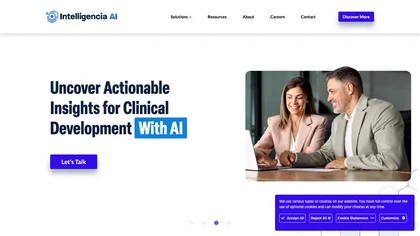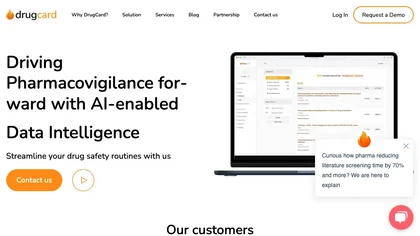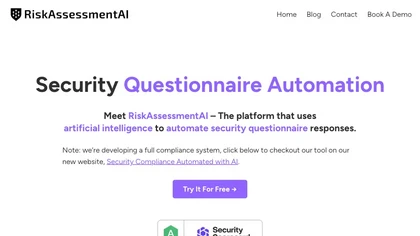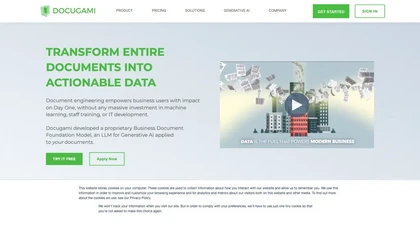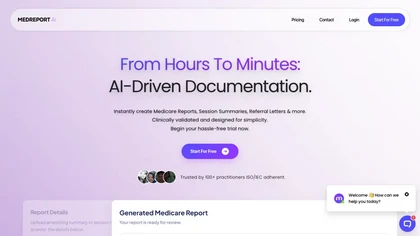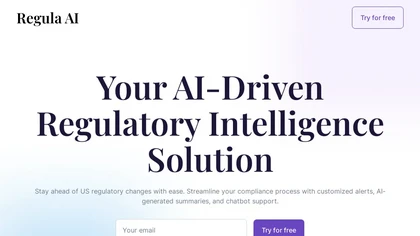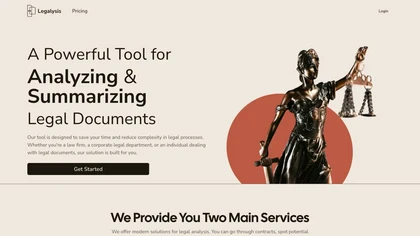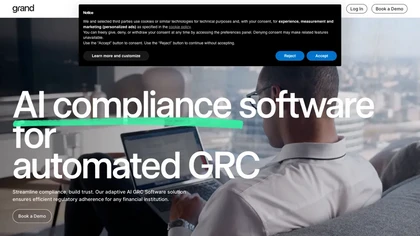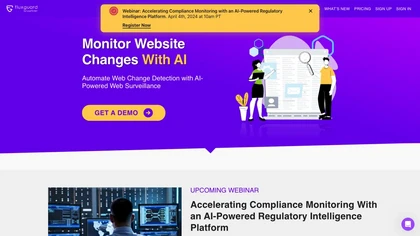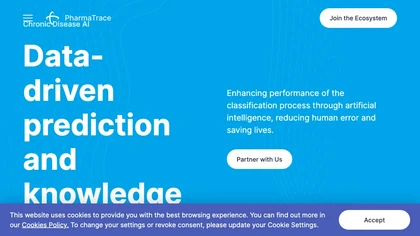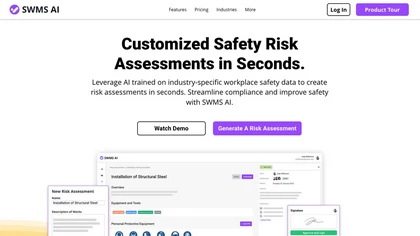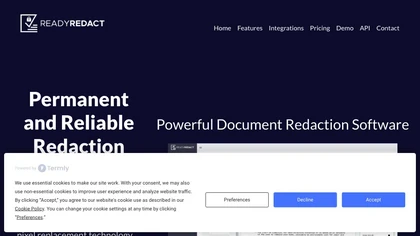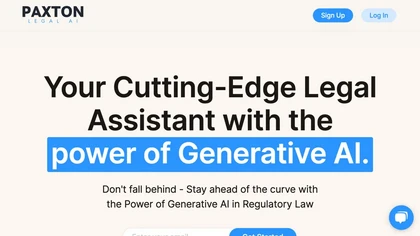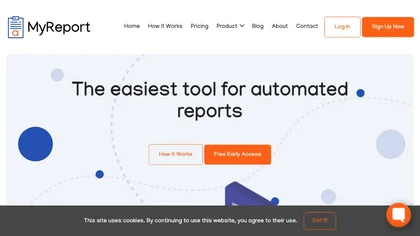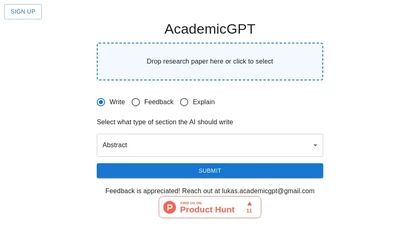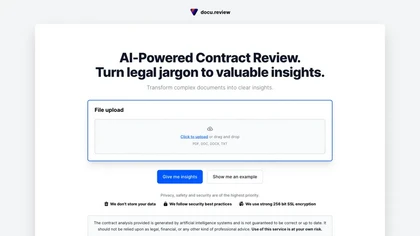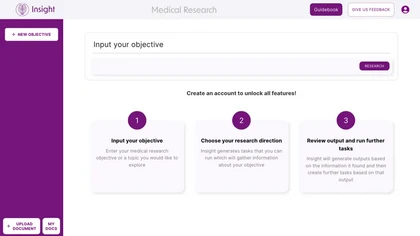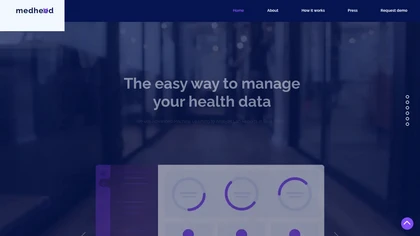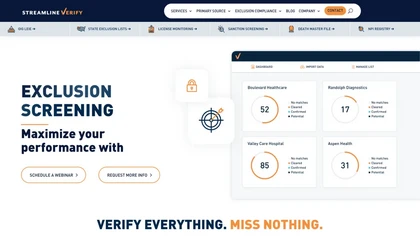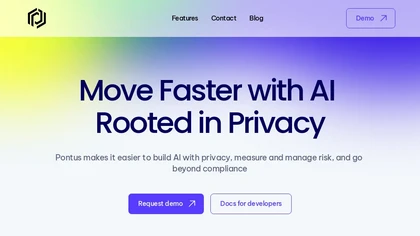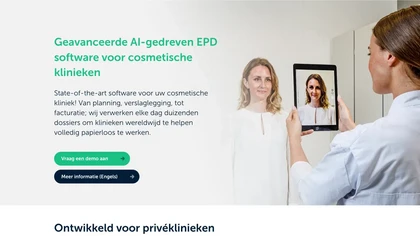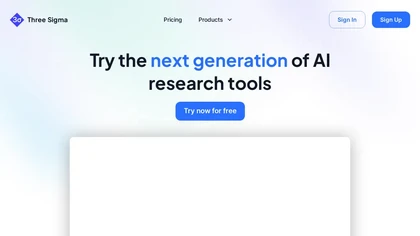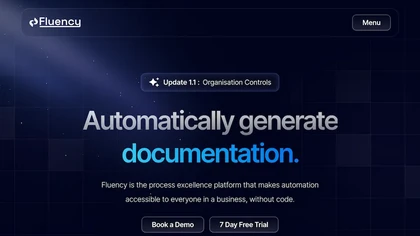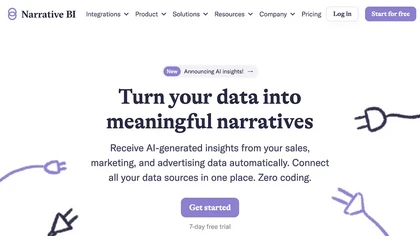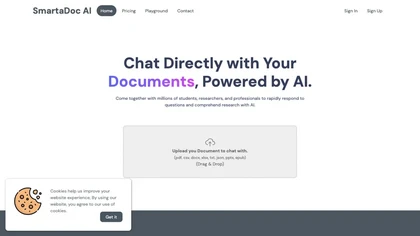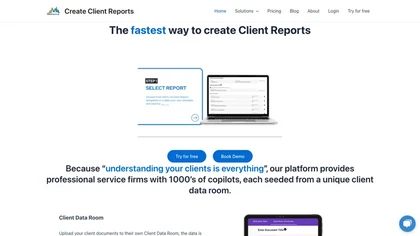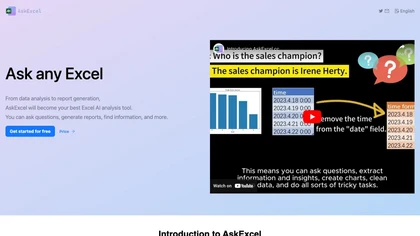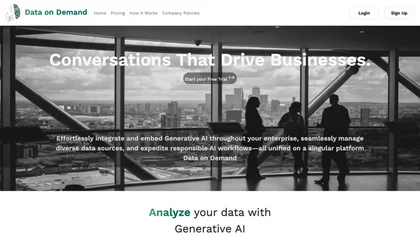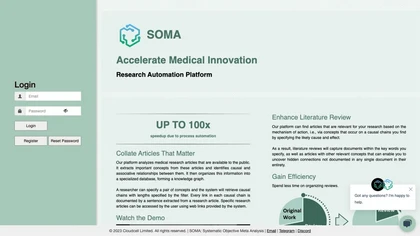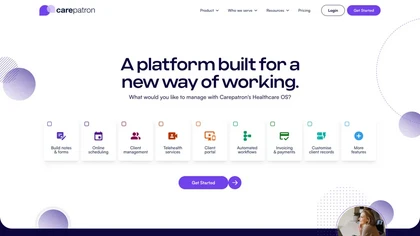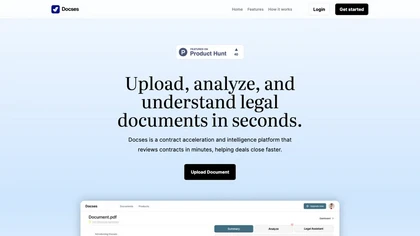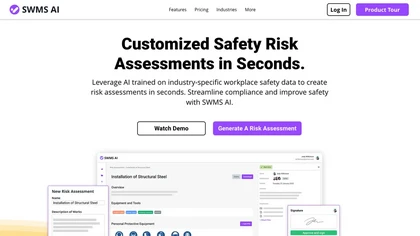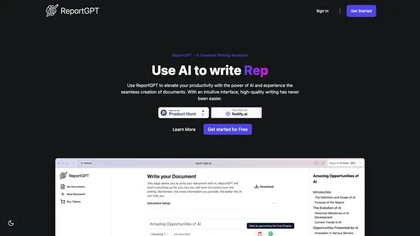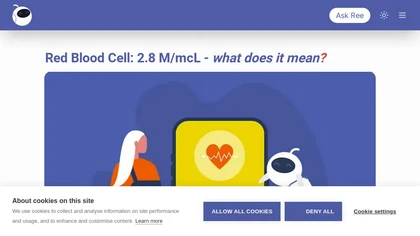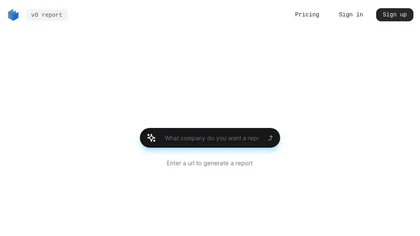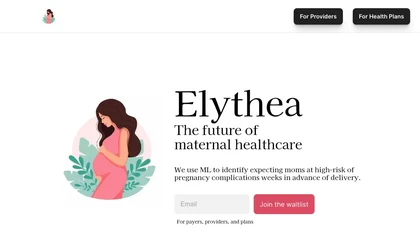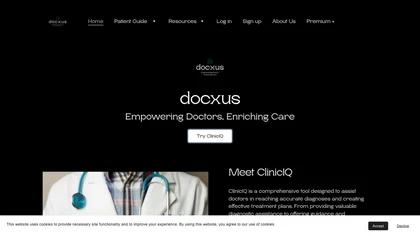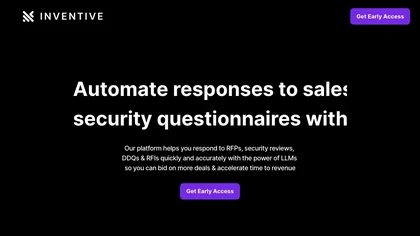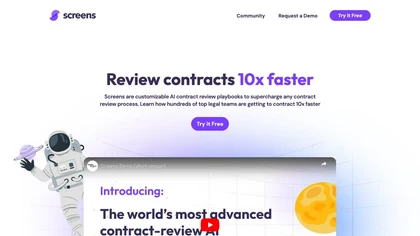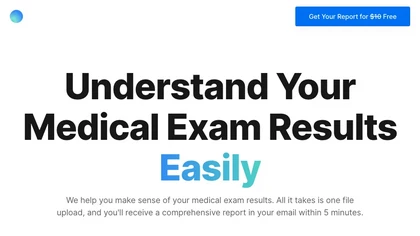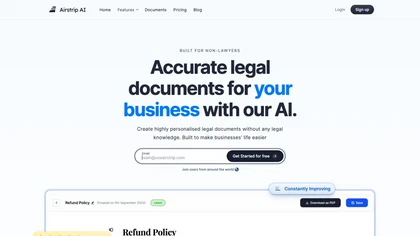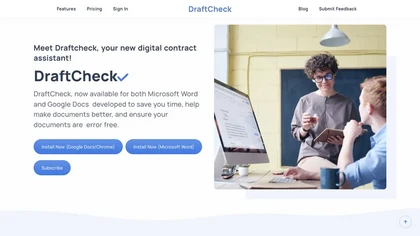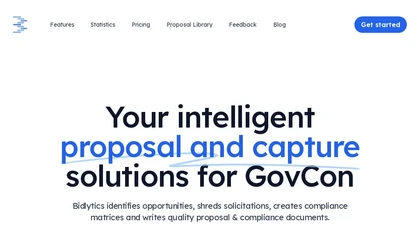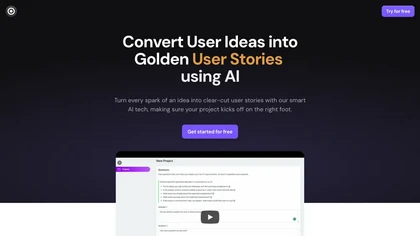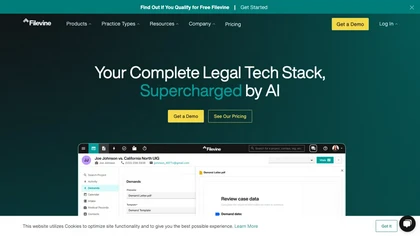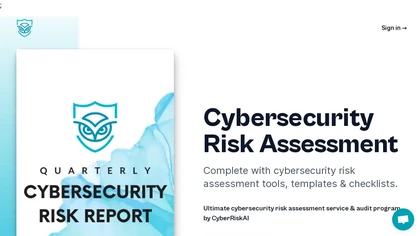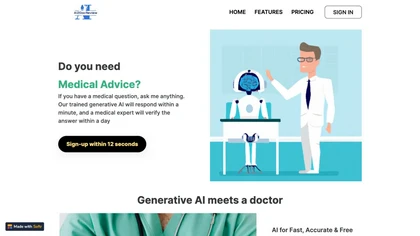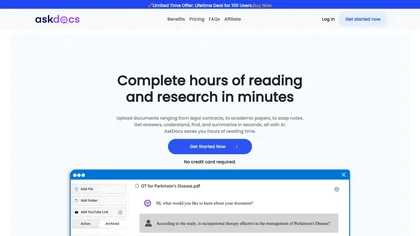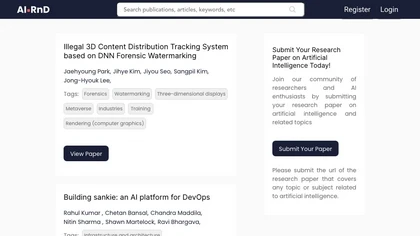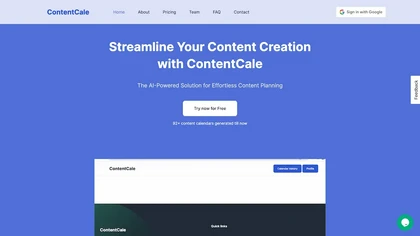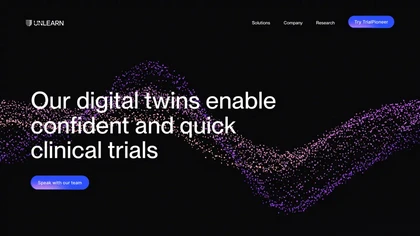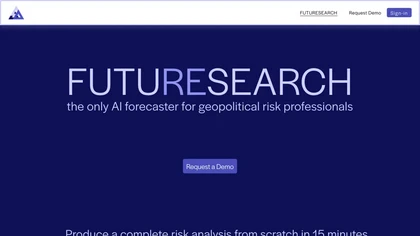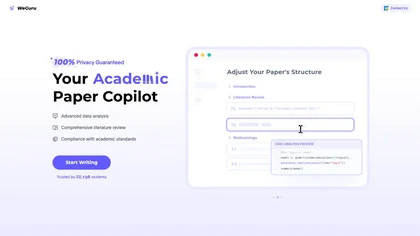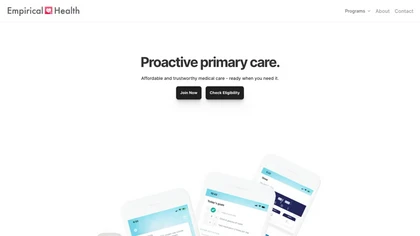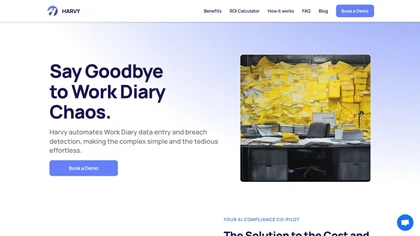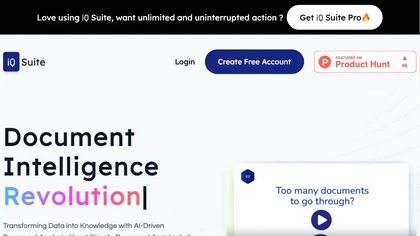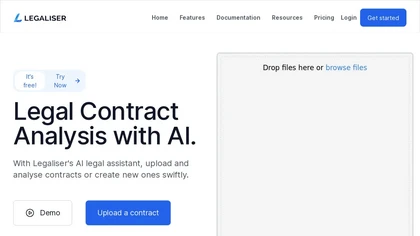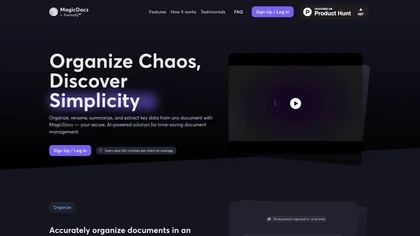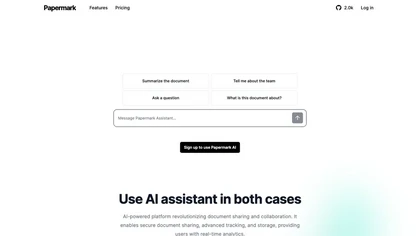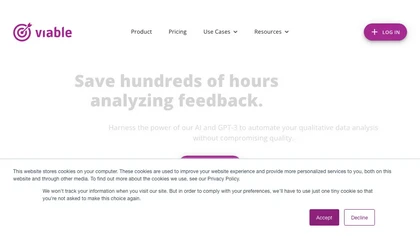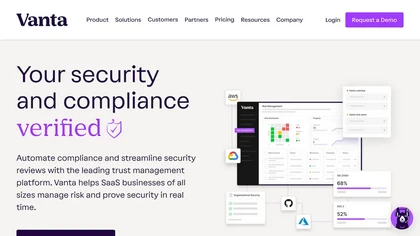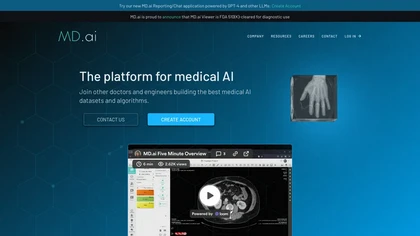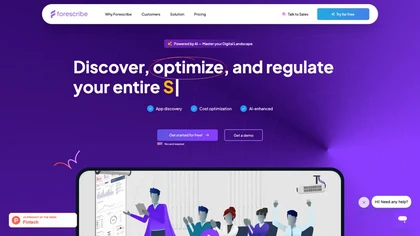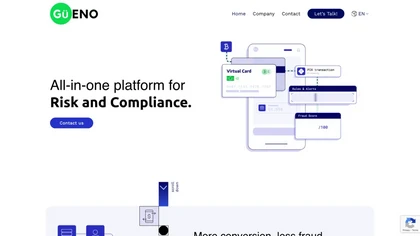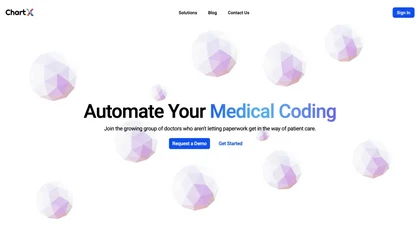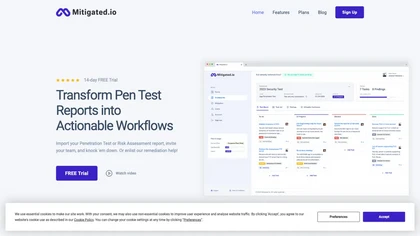AI use cases for Regulatory Affairs
Generative AI can be applied in various applications for regulatory affairs. Here are some examples to explore below for inspiration with AI tools to get you started with using AI in regulatory affairs.
🛠️ 70 AI tools for Regulatory Affairs
Explore a dynamic list of some of the most popular tools to get you started with various AI use cases and applications for Regulatory Affairs to streamline your workflows and productivity today.
intelligencia.ai features
- Measuring the likelihood of success in drug development
- Identifying underlying drivers contributing to technical and regulatory risks
- Optimizing clinical trial design
- Standardizing risk evaluation processes
- Transparent and explainable AI features
DrugCard features
- Automates drug safety routines
- Multiple languages and countries
- High-performance screening
RiskAssessmentAI features
- Automate security questionnaire responses
- Scan documentation
- Build knowledge base
- Support various assessment formats
- Collaboration between teams
docugami features
- AI Data Extraction
- Generative AI for document analysis
- Industry-specific insights application
- Transformation of unstructured documents into structured information
- Integration with familiar tools and business systems
MedReport AI features
- Instant creation of Medicare reports
- Generation of session summaries
- Generation of referral letters
- Option to choose from industry-standard templates
- Ability to create custom workflows
Regula.ai features
- Provides customized alerts
- Generates ai-summaries
- Natural language query support
- Simplifies compliance
- Helps smbs stay informed about regulatory changes
Legalysis features
- Contract risk analysis
- Document summarization
- Legal Language Model (LLM)
- Cross-country risk pointing
- Time-saving document summarization
🔥
Create your account, save tools & get personal recommendations
Receive a weekly digest of our handpicked top tools.
Unsubscribe anytime
Grand features
- Automated GRC software
- Efficient regulatory adherence
- Compliance workflows automation
- Policy and regulatory news monitoring
- Insights into regulatory changes
Fluxguard features
- Web Change Monitoring using generative AI
- Screenshots and pixel change detection
- Text change detection and network analysis
- Real-time or scheduled report dispatch
- Email reports with screenshots and text changes
PharmaTrace features
- Chronic disease management
- Early disease detection
- Economic costs reduction
- Budget forecasting
- Decision support
SWMS AI features
- Tailored risk assessments generation
- Customizable safety policies
- Personalized document generation
- Integration of AI assistant for safety information
- Streamlining compliance processes
ReadyRedact Document Redaction features
- Redacting
- Documents
- Privacy
- Data protection
- Compliance
- Gdpr
- Ccpa
- Lgpd
- Popi
- Hipaa
PrivacyQuest features
- Record processing activities management
- Incident/breach management
- Individual rights management
- Consent management
- Automated document generation
Paxton.ai features
- Legal research
- Drafting of memos, briefs, and client communications
- Customized templates
- Automatic citation formatting in bluebook style
- Comparison of versions of laws and regulations over time
MyReport features
- Automate data collection
- Automate citation
- Description of report topic
- Review of report
- Send report
AcademicGPT
2.6AcademicGPT features
- Generate abstracts
- Provide feedback on paper sections
- Ease writing process
- Save time
Docu features
- Document upload functionality
- Summarization of legal documents
- Identification of key points and critical clauses
- Alerts for potential risks and beneficial clauses
- Utilization of AI algorithms for streamlining document review process
Insightai.dev features
- Guided research process
- Task generation
- Output based on gathered information
- Task iteration based on output
- Efficient navigation
Medheed features
- Real-time analysis of lab reports
- Detailed insights for medical professionals and patients
- Comprehensive analysis of patient records
- Fast and cutting-edge technology
- Accurate diagnoses and efficient treatments
Streamline Verify features
- Screening against various databases including OIG LEIE, state exclusion lists, license monitoring, sanction screening, death master file, and NPI registry
- One-stop portal for quick identification and resolution of compliance screening issues
- API integration for future compliance needs
- Enhances efficiency in executing exclusion screening and credential management
- Trusted by over 10,000 establishments
Pontus features
- Privacy-focused ai platform
- Smart anonymization feature
- Intuitive dashboard for auditing compliance
- Trust-made-easy components
- Secure document storage and privacy-aware caching
- Works with common llm providers
- Incorporates toxicity checking
Clinicminds features
- Scheduling
- Treatment Records
- Quinn AI
- Video Calls
- Gift Cards
- Payments
- Cross-Device
- QMS
- Integrations
- Compliance & Security
Three Sigma features
- Advanced search technology
- Imagine assistant
- Chatgpt plugin
Fluency.com features
- Automated Process Documentation
- Process Insights
- AI Assistant
- Automations
- Audit View
Narrative BI features
- All the metrics under one roof
- Natural language generation
- Anomaly detection
- Scheduled reports
- AI driven insights
- Slack chatbot
- Multiple data channels integrations
SmartaDoc AI features
- Support for multiple file formats like PDF, CSV, DOCX
- Chat history for tracking interactions
- Document summarization capabilities
- Quick starting questions to facilitate user engagement
- Efficient extraction of key information from documents
Client Reports features
- Unique client data room for uploading and utilizing client documents
- Automatic generation of client reports including business plans, company valuations, diligence reports, and investor reports
- Exportability of reports to Microsoft Word documents
- Insights and information on client's business activities, projects, and key performance indicators
- Applicability in various sectors such as finance, accounting, legal, construction, retail, and healthcare
AskExcel features
- Natural language processing for asking questions
- Automatic report and chart generation
- Data analysis for academia and research
- Market data and customer behavior analysis for businesses
- Language flexibility for communication
Data on Demand features
- Seamless integration of generative AI throughout enterprises
- Management of diverse data sources
- Expedited responsible AI workflows
- Efficient extraction and analysis of relevant data
- Visualization of complex datasets
SOMA features
- Automating research process
- Collating and analyzing medical research articles
- Identifying causal and associative relationships
- Creating a knowledge graph for exploration
- API access for building pipelines in Python, R, or other languages
Carepatron features
- Billing and coding functionality
- Clinical notes documentation feature
- Health records management capability
- Online payments integration
- Telehealth services support
Docses features
- Automated summarization of legal documents
- Identification of red flags and critical clauses using advanced algorithms
- Real-time conversations with an AI legal assistant
- Caters to various professionals and industries
- Assistance in understanding legal jargon and making informed decisions
SWMS features
- AI risk assessments
- Safety Co-Pilot integration
- Customization options
- Quickly generate safe work sequences
- AI-powered safety recommendations
ReportGPT features
- Efficient content generation
- Customizable document structures
- Diverse export options
- AI assistance for refining and personalizing content
- User-friendly interface
Ree AI features
- Explain medical reports
- Recommend supplements
- Check drug interactions
v0 report features
- Custom report generation
- Web scraping
- Automated insights
- File Uploading
Elythea features
- Integration with ehr systems
- Personalized insights
- Early intervention
DocXus features
- Assist in accurate diagnoses
- Create effective treatment plans
- Streamline diagnostic process
- Offer resources and knowledge for ongoing learning
- Provide patient guide for disease management
Inventive features
- Streamline rfis, rfqs, security reviews, rfps
- Generate reliable answers with ai
- Reduce reliance on subject matter experts
- Save substantial time and effort
- Up-to-date content
Screens features
- Customizable AI contract review playbooks
- Instant redline suggestions within Microsoft Word
- Ability to run thousands of contracts at once using the Screens app
- Secure and powerful repository for storing contracts
- Expert-crafted playbooks with a focus on accuracy, trust, privacy, and data security
MedLabReport features
- Upload
- File
- Medical
- Exam
- Results
- 5
- Minutes
- Personalized
- Report
- Symptoms
- Age
- Factors
- Ai
- Analysis
- Cover
- Various
- Types
- Exam
- Results
- Blood
- Tests
- Biopsies
- Imaging
- Studies
- Text
- Urine
- Diagnostic
- Procedures
Airstrip AI features
- Personalized questionnaire for document creation
- Lawyer-level revisions suggestions
- End-to-end encryption (AES-256)
- Compliance with regulations (HIPAA, GDPR, CCPA)
DraftCheck features
- Automated document review processes
- Surface formatting errors, cross-references, term definitions, and inconsistencies
- Multi-document conflict checks
- Document history tracking
- Local processing for enhanced privacy
Bidlytics - AI for GovCon features
- Enhanced Privacy & Security
- Seamless Bid Discovery
- Automatic Solicitation Shredding
- Compliance Matrix on Autopilot
- Fast & Accurate Proposal Generation
Get Requirements features
- Requirement gathering automation
- User story generation
- Stakeholder voice integration
- Real-time feedback
- Smart follow-ups
DemandsAI features
- Teams Permissions model for managing staff access
- Customized Settlements tab for managing and calculating settlement details
- Enhanced conflict checker for addressing potential conflicts
- SidebarAI as a personal AI Assistant for chat conversations and guidance
- AIFields for instant legal document analysis and insights
Cyberriskai features
- Cybersecurity risk assessment
- Automated quarterly risk audits
- Nist cybersecurity audit framework
- Comprehensive assessment report
- Employee cybersecurity practices
AI2DocReview features
- Quick medical advice
- Trained generative AI responses
- Accuracy verification by medical experts
- Filtering out inaccurate information
- Affordable insurance and reservation price testing options
E-label.io features
- Generate e-labels with dynamic QR codes
- Upload nutritional information, ingredients, and lab results
- Customize stored data and attach QR code to wine labels
- Automatic translation support for EU languages
- Integration with ERP systems and web stores
AskDocs features
- Uploading multiple document types
- Smart document reader
- Information retrieval
- User data security
- Cloud storage
AI-RnD features
- Access
- Share
- Disseminate
- Promote
- Collaboration
ContentCal features
- Generating a content calendar
- Suggesting content ideas
- Creating a content strategy
- Early access subscription
unlearn.ai features
- Patient-specific digital twins
- Expedited enrollment in clinical trials
- Enhanced observation of treatment effects
- Utilization of smaller control groups
- Forecasting of future health outcomes
Futuresearch features
- Comprehensive risk assessments in 15 minutes
- Five-stage AI-powered workflow
- Daily analysis of new scenarios
- Search scenarios based on daily news
- Simulate future outcomes with accurate predictions
WeGuru features
- Data analysis
- Comprehensive literature reviews
- Academic standards compliance
- Privacy guarantee
- Expert literature review services
Empirical Health features
- Proactive primary care
- Integration of consumer wearables for health monitoring
- Consultation with doctors via mobile app
- Personalized care plans
- Compatibility with major insurance providers
Harvy features
- Automated work diary data entry
- Breach detection
- AI-driven automation for reducing human error risks
- Fast notice-to-produce reporting
- Online access to work diary sheets for up to 3 years
GeniePM features
- Product requirements
- User stories
- Use cases
iQ Suite features
- Uploading pdf files
- Crafting queries for document insights
- Automatically detecting and extracting data
- Presenting extracted data in charts and tables
- Integrating with other apps through rest api integration
Legaliser features
- Contract analysis
- Drafting
- Fairness assessment
- Risk analysis
- Anomaly detection
Inc. features
- Real-time global threat assessment
- Continuous monitoring and analysis of vast data sources
- Actionable intelligence delivery
- Comprehensive insights into evolving threats
- Integration of advanced data analytics, machine learning, and predictive modeling
Magic Docs features
- Organize documents
- Rename documents
- Summarize documents
- Extract key data
- Enterprise-level security
Papermark features
- Secure document sharing
- Real-time analytics and insights
- Grammar checking
- Content summarization
- Custom link sharing
viable features
- Automated qualitative data analysis
- Customer feedback understanding
- Nlp technology
- Feedback analysis
Vanta features
- Automating security compliance processes
- Integration with over 300 security tools
- AI capabilities for accelerating security workflows
- Vendor risk management assistance
- Compliance with over 25 frameworks
md.ai features
- DICOM support
- Web-based annotation tools
- Creation of bounding box or freeform annotations
- API, Jupyter integration, and client libraries
- Model development, training, validation, and deployment facilitation
Forescribe features
- Discover, analyze, and manage integrations of SaaS applications
- Provide real-time insights on SaaS usage and compliance
- Automated compliance checks for SaaS applications
- Offer cost optimization suggestions for SaaS applications
- Enhance transparency in digital landscape governance
AI-FraudGuard Ecommerce features
- Contactless conversion
- Fraud prevention
- Transaction monitoring
- Compliance processes automation
- Real-time monitoring
ChartX features
- Automated generation of progress notes
- Accurate generation of billing codes
- Streamlining administrative tasks in healthcare
- Advanced privacy controls
- Seamless integration with existing EHR systems
Mitigated.io features
- Transforms penetration test risk assessment reports into actionable workflows
- Leverages collaborative workspaces for task assignment and progress tracking
- Provides AI-enriched mitigation guidance for security vulnerabilities
- Supports easy import of assessment reports
- Enables users to enlist security mitigation services directly from the dashboard
